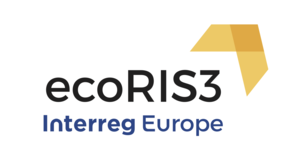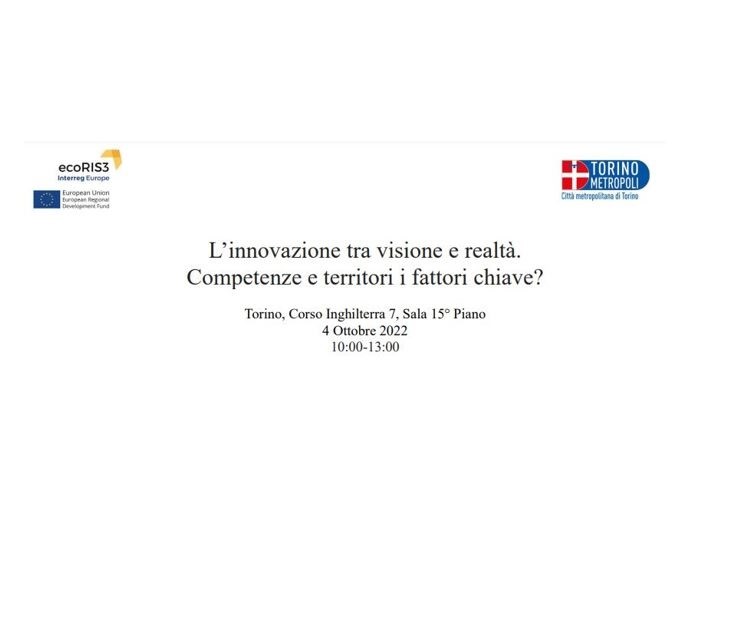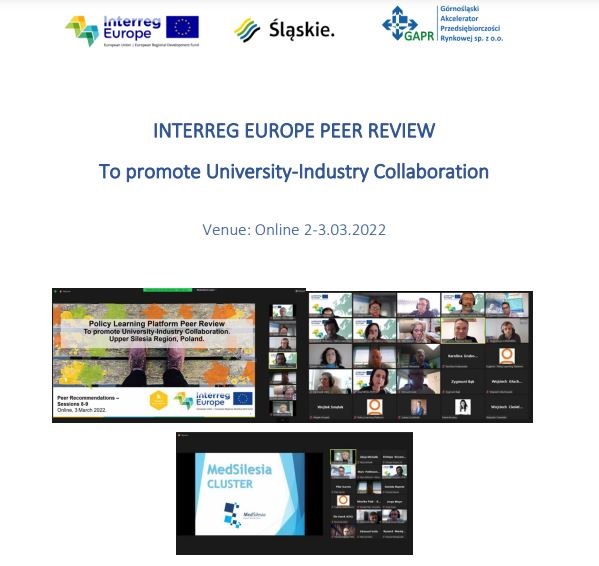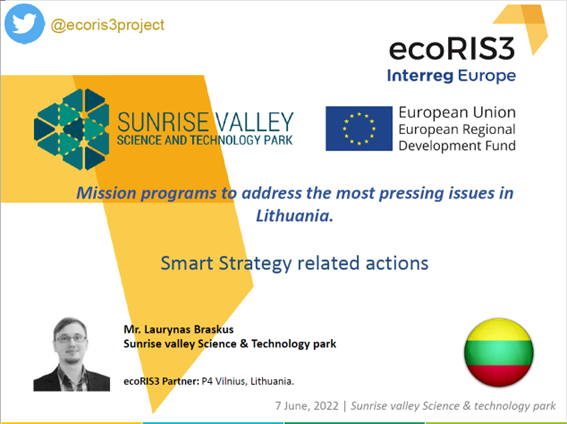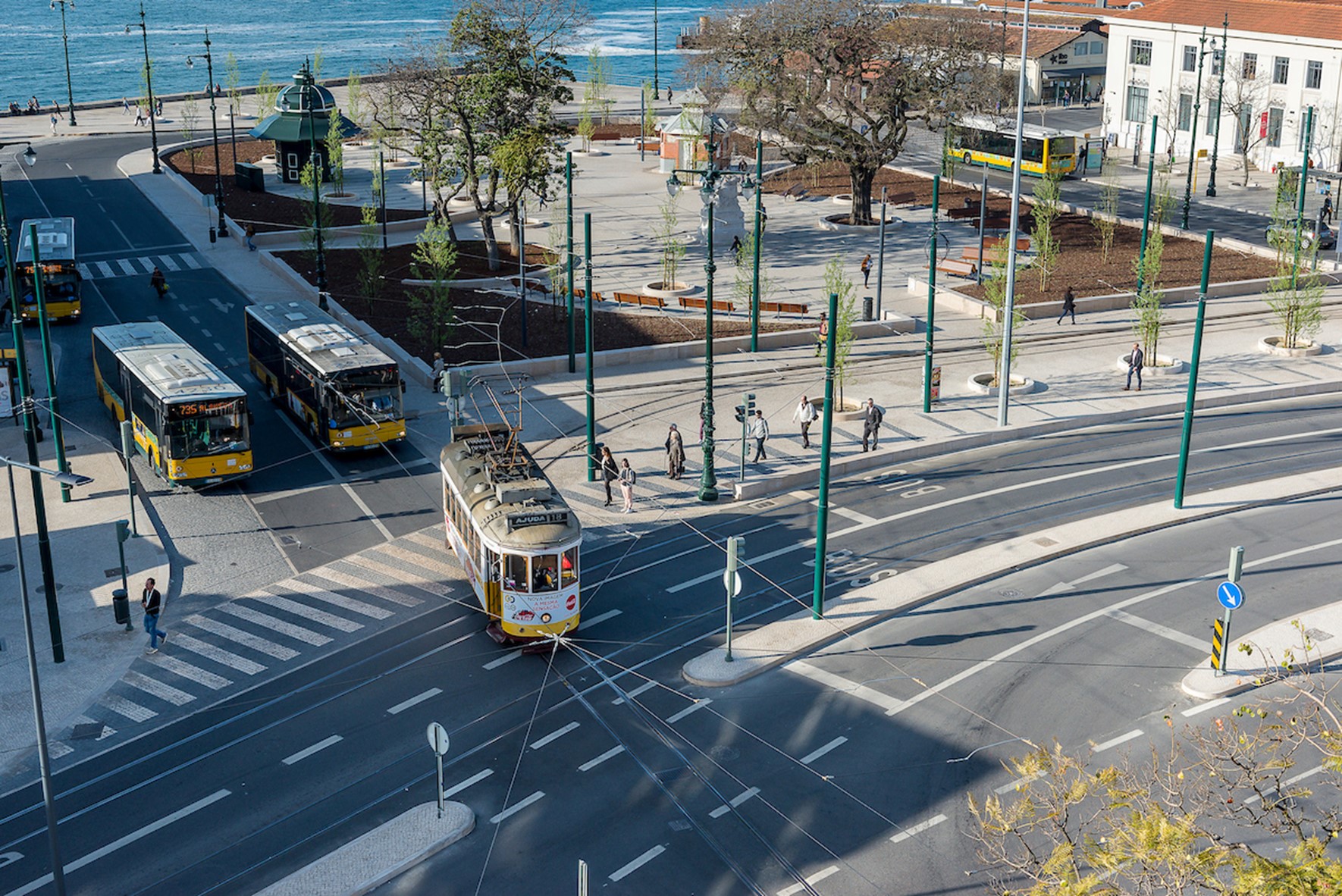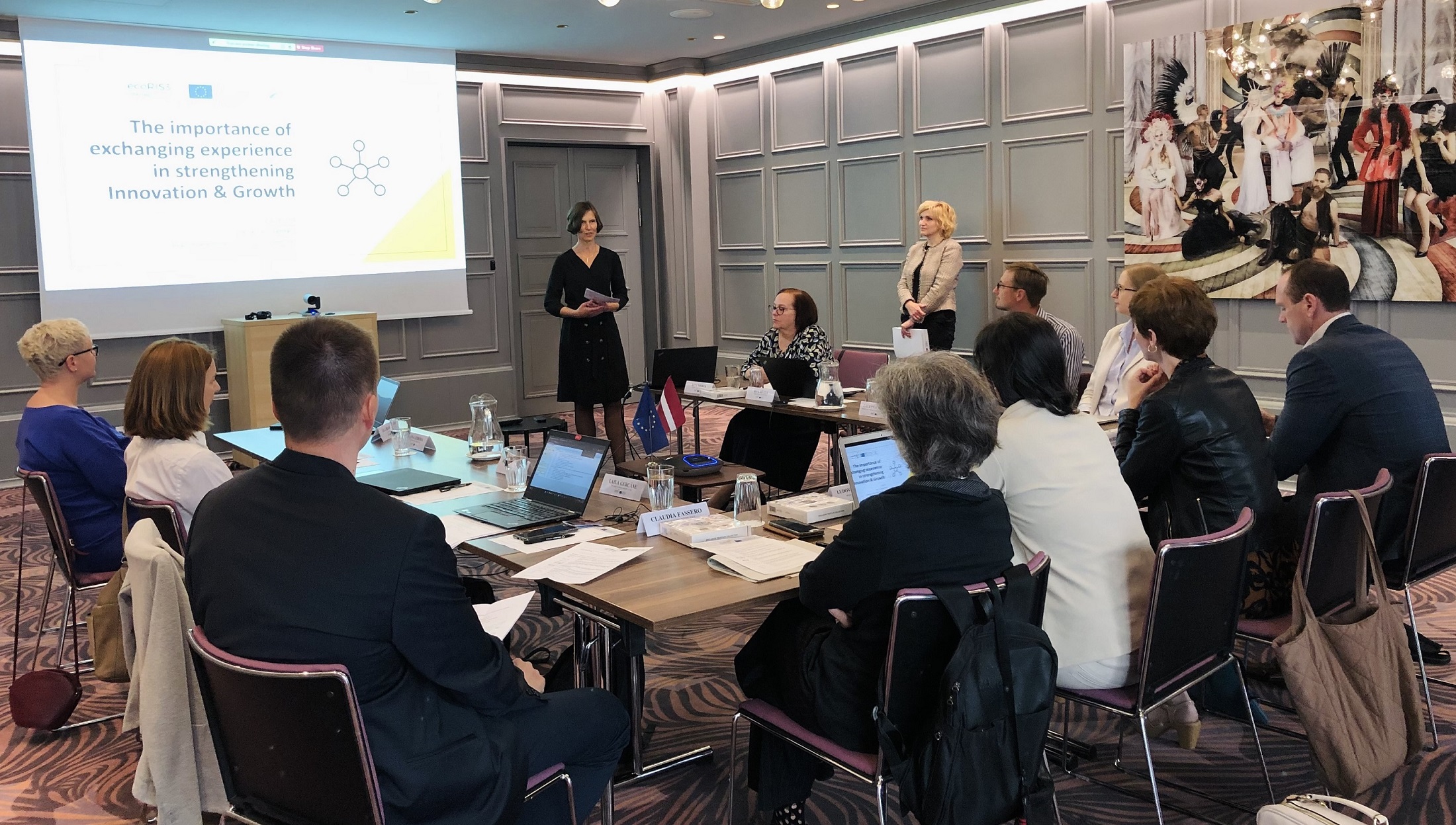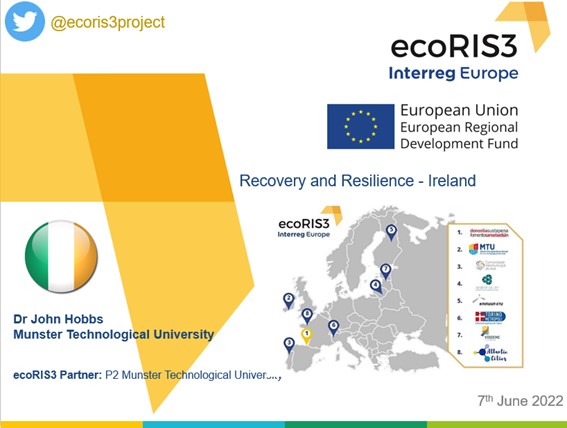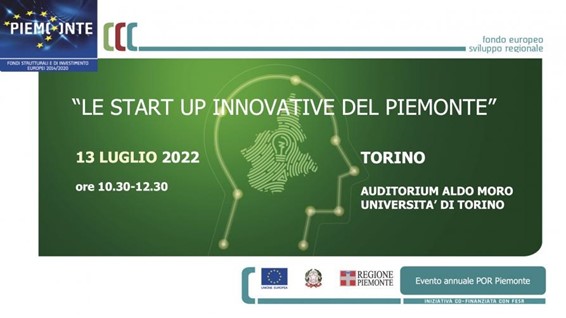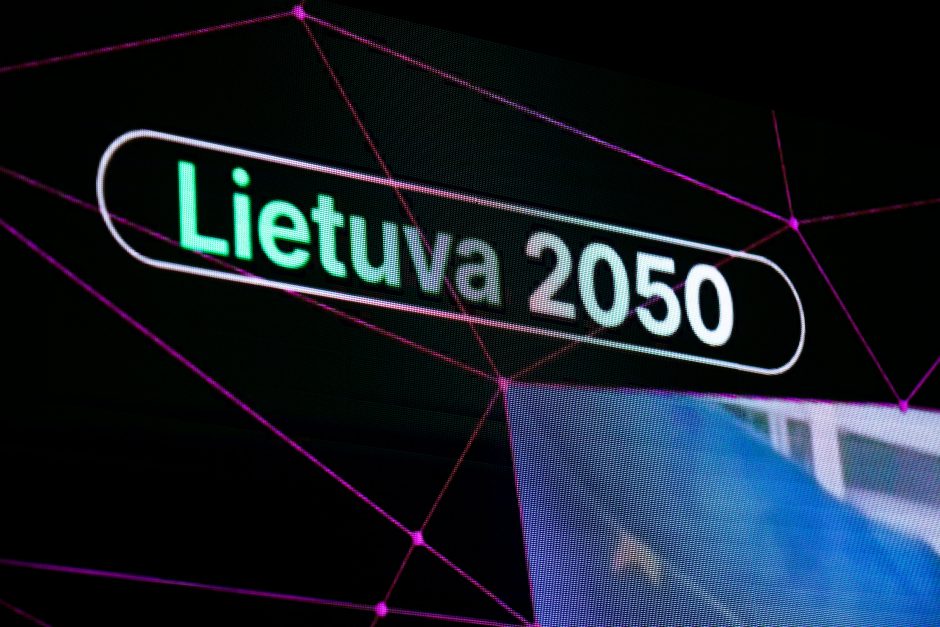Sunrise Valley Science and Technology Park hosted a workshop of Interreg Europe project ecoRIS3 in Vilnius on the 27th and 28th of November 2018. The project analyses models and good practices on how higher education, business, government, and society can contribute to implementation of smart specialisation strategies. The workshop in Vilnius was dedicated to science and business cooperation measures contributing to regional development.
Project partners shared the best cases from Lithuania, Latvia, Finland, Ireland, France, Italy, Spain, and Portugal. Most countries reported success stories in science and business cooperation through the prism of clusters, networking initiatives and support schemes, focusing on building a supportive ecosystem with the help of public services for incubation, scouting, technology transfer, and consultancy. The importance of ecosystem was verified through success stories coming from extended campuses (Cork Institute of Technology (CIT), Ireland), business incubators (Vidzeme Entrepreneurship Center, Latvia; Biotechnology incubator, Lithuania; Innovative Enterprise Incubators of the Polytechic and of the University of Turin, Italy), science parks (Sophia Antipolis, France), clusters (LITEK, Lithuania; CeNTI, Portugal). Besides the ecosystem, financial support measures were implemented in partner regions to facilitate the cooperation, ranging from co-creation workshops (DELL extended campus of CIT, Ireland; Game cluster, Finland) to technology vouchers (Biodonostia, Spain).

Image: The ecoRIS3 consortium at the Life Science Centre (open access laboratories) in Vilnius
Aiming to better understand the key factors behind the science and business cooperation, partners have visited VGTU Innovation and creativity centre “Linkmenų fabrikas“, Laser & Engineering technologies cluster (LITEK), Life Science centre (open access laboratories) together with its biotechnology incubator and biotech startup companies Satimed and Caszyme.
"The workshop organized by our colleagues of Sunrise Valley within the framework of ecoRis3 project was a fruitful opportunity to exchange ideas on tools to strengthen cooperation among business and science. Support services provided by clusters, incubators and public agencies are key to help entrepreneurs to convert ideas into business“, - says Yesenia Otamendi, international affairs officer at Fomento San Sebastián, Spain, which is the lead partner of the project.
Dr. John Hobbs, Cork Institute of Technology and member of the TCI Network was impressed with the global reach of LITEK the Laser & Engineering Technologies Cluster which brings together over 30 firms in Vilnius. “We were fortunate during the ecoRIS3 workshop in Vilnius to hear from Lurde Andrijauskaite, Project Manager at LITEK, about the benefits they bring to their membership in terms of catalysing the competitiveness of member firms through a combination of maximising profit either through competition or by cooperating with competitors to achieve a common goal. Furthermore, LITEK are leading the Laser Go Global project – providing the type of integrative initiative that is addressing the internationalisation challenges their members are facing and connecting the cluster globally.”
Image: The ecoRIS3 consortium during a visit to the LITEK the Laser & Engineering Technologies Cluster.
Project partners also shared their visions on action plans to be developed as a set of recommendations for the governments, directly responsible for shaping the smart specialisation policies in their respective countries. Four ecorRIS3 workshops aimed to identify good practices on how quadruple helix successfully fosters regional develoment. Now, project seminars will take place to open the selected Best Practices to a wider audience. The first ecoRIS3 seminar will be held in Portugal (by CIM do AVE partner) under the “Quadruple Helix & RIS3” theme (January - February 2019). Stakeholders are welcome to contact Comunidade Intermunicipal do Ave the local partner for more details and to participate in the events.
